Devlin Scott
In my reviews I try neither to persuade nor to dissuade others. I believe the art of reading is a very personal experience and that my opinion should not intrude upon others enjoyment. I merely state how I felt while reading and I will allow others to decide for themselves. This is why I will not present a play-by-play description.
I will only offer a few basic details to help you decide if what I present is worth your time.
 Three Plays by Ayn Rand
Three Plays by Ayn RandNight of January 16th ****
Ideal ****
Think Twice *****
The first play is a murder trial in which the audience (or the reader) determines the verdict. (This play was actually produced this way in the early 1930's)
The second is an example of "objectivist" principles as a woman accused of murder tries to "escape".
In the third we are witnesses to a murder and investigation in which all the suspects have a clear and strong motive.
I highly recommend the play Think Twice for any amateur sleuths out there. It is a very clever murder mystery!
You should have figured out the murderer (and motives) by the first act. ;)
If you love Rand's philosophy then the plays are like "mother's milk" if not...at the very least they will help explain her goals and thoughts for the world. ;)
Devlin
 Clever and adorable. A good and fun book to play out with your children. Read it, live it, love it.
Clever and adorable. A good and fun book to play out with your children. Read it, live it, love it.Recommended for all.
Devlin
 What a wonderful novel! Such complicated characters living in such a twisted reality yet, amidst all the chaos and damage, one funeral, one accidental death, a myriad of countless betrayals and misunderstands, and you still manage to come away with an incredible calm and peaceful contentment upon finishing. A happiness well worth living.
What a wonderful novel! Such complicated characters living in such a twisted reality yet, amidst all the chaos and damage, one funeral, one accidental death, a myriad of countless betrayals and misunderstands, and you still manage to come away with an incredible calm and peaceful contentment upon finishing. A happiness well worth living.This is a must read and a must 'live' story. Take up my challenge and give it a go...you might be surprised at the internal outcome budding within you when you finish.
Devlin
 Not quite a scary story but a very clever one, filled with mysteries that must be solved. I think everyone should add this book to their reading lists...especially for that dark and stormy night. Just sit in a rocking chair and let the wind whisper its thoughts to you while you read.
Not quite a scary story but a very clever one, filled with mysteries that must be solved. I think everyone should add this book to their reading lists...especially for that dark and stormy night. Just sit in a rocking chair and let the wind whisper its thoughts to you while you read. Devlin
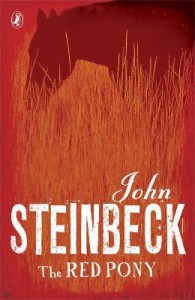 It is a good series of short stories, enriching but not happy. Typical of Steinbeck. :)
It is a good series of short stories, enriching but not happy. Typical of Steinbeck. :) I felt Steinbeck's message of a boyhood-to-man transition during the depression era translated better without the Grandfather story. While the Grandfather story is entertaining and important to The Red Pony's central message I think the tale has a stronger emotional impact without it.
Devlin
 Brilliant! I had forgotten how exciting this story was. I'm glad it still entertained me after all these years. There's also a very good fudge recipe in the back guaranteed to put you in a sugar coma. ;)
Brilliant! I had forgotten how exciting this story was. I'm glad it still entertained me after all these years. There's also a very good fudge recipe in the back guaranteed to put you in a sugar coma. ;)Devlin
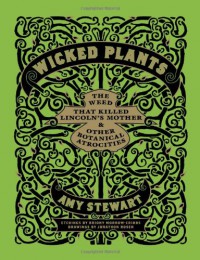 Very informative. I learned quite a bit and new knowledge is always welcome. I would have given four stars but some of the art work seemed detrimental to the overall work.
Very informative. I learned quite a bit and new knowledge is always welcome. I would have given four stars but some of the art work seemed detrimental to the overall work.
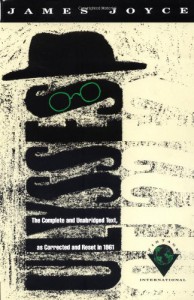 Clearly this novel has won, perhaps wrested the honor of the most difficult book I've yet read. Stream-of-consciousness has always been rough reading for me especially when you add more to the mix than predator / prey motivation. But, when you factor in the human element (why do I exist, what is my reason for living, etc. etc. etc.) it just becomes a journey that requires a slow and simple step.
Clearly this novel has won, perhaps wrested the honor of the most difficult book I've yet read. Stream-of-consciousness has always been rough reading for me especially when you add more to the mix than predator / prey motivation. But, when you factor in the human element (why do I exist, what is my reason for living, etc. etc. etc.) it just becomes a journey that requires a slow and simple step. Take care with this novel. It's well worth reading but it will not rest quietly inside your mind. Methinks that was Joyce’s intent…
Devlin
 This review is for all three books in this series.
This review is for all three books in this series.The Zombie and Vampire cookbooks presented some clever ideas for any grownup party. The Werewolf Cookbook contained more ideas suited for children's parties. (I had hoped for more heavy meat type dishes.) I seriously did think "heavy meat" while reading.
The Zombie book featured recipes with body parts and stressed a diseased, rotted look to the dishes. The Vampire book was heavy with soups and sauced-liquid meals but, the Werewolf cookbook seemed to favor 'dirt' and deserts more in line with kids. I expected racks of lamb and pigs awash in blood (congealed and fresh) sauces, beef dishes with 'bone in' for that "fresh from the victim look".
The lacking Werewolf Cookbook is the only reason this series didn't receive 4 stars from me. Fresh meat rended from limb is what this cookbook should have been about, not cupcakes with worm/dirt icing. ;)
I do intend to try a few of the recipes during next Halloween's party. The floating (ice) hands in the punch bowl is genius at is culinary best. And let's not forget olive eyeballs. Yum!
Devlin
 A Remarkable account of true courage and hope! We must forever learn and never forget what it is to be fully human and how necessary it is to love ourselves and each other.
A Remarkable account of true courage and hope! We must forever learn and never forget what it is to be fully human and how necessary it is to love ourselves and each other.Talmudic quotation, "Whoever saves one life saves the world entire".
Devlin
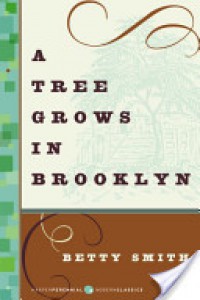 It's brilliant!!!
It's brilliant!!! It is very bittersweet, not too sad, not too joyous. It has a simple, even pacing and the characters are very real on the page. It is simply a must read! And it offers a feel-good ending.
Devlin
 Description from Amazon Kindle:
Description from Amazon Kindle:Bindi, Robert and Terri Irwin are on their way to Sumatra to collect three gorgeous tiger cubs to take back to the Australia Zoo. Soon after they are introduced to the mischievous trio, Bindi and her new friend Madi get involved in tracking down a gang of dangerous tiger poachers.
What a wonderful (fictional, though I suspect it contains more truth than one would like to admit) adventure tale featuring Bindi, Robert, and Terri as they attempt to solve a poaching mystery and rescue a wild Sumatran tiger.
This is a well written adventure tale for children filled with a variety of truths and facts about the endangered tigers of Sumatra and the people trying desperately to save them from extinction.
Everyone should help out by purchasing a copy and sharing the story with your friends. Together, let's help Bindi and the Australian Zoo save our friends from extinction!
I recommend this book for everyone.
Devlin
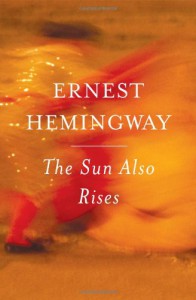 Hemingway's message...? Go ahead and enjoy Today for, no matter what happens, Tomorrow will always be there.
Hemingway's message...? Go ahead and enjoy Today for, no matter what happens, Tomorrow will always be there.Devlin
 This review is not to revere SeaBiscuit, he doesn’t need me to expound upon his virtues, he’s already won the honors of the greatest racehorse in history and you would be a fool not to read this book and enjoy the ride; this review is to honor the author Laura Hillenbrand. Never have I seen such passion go into the description of a horse race. But, you decide for yourself…here’s an excerpt from the book:
This review is not to revere SeaBiscuit, he doesn’t need me to expound upon his virtues, he’s already won the honors of the greatest racehorse in history and you would be a fool not to read this book and enjoy the ride; this review is to honor the author Laura Hillenbrand. Never have I seen such passion go into the description of a horse race. But, you decide for yourself…here’s an excerpt from the book: SPOILER BELOW
At the door of the jockeys’ room, Woolf shed his bodyguards. His mind was full of Stagehand. He made a mental note. Stagehand would carry the same colors as his nearly identical full brother, Sceneshifter, but to enable the race caller to discriminate between them, Stagehand’s jockey was to wear a white cap, Sceneshifter’s a red one. Woolf walked down to the paddock, where Clem McCarthy awaited him, microphone in hand for a live interview. All I need is luck, Woolf told a rapt audience. Seabiscuit will do the rest.
Howard and Smith saw Seabiscuit and Woolf onto the track, then filed up into Howard’s private box. They would say nothing to each other for the next 121 seconds.
As Seabiscuit broke from the gate, he was immediately bashed inward by Count Atlas, a hopeless long shot emerging from the stall to his right. Seabiscuit was knocked nearly to the ground. As he staggered sideways, Count Atlas sped up in front of him, then abruptly cut left and slowed down, pushing back into him again. Seabiscuit stumbled badly, his head ducking, and Woolf was vaulted up onto his neck. For a terrible moment, Woolf clung to Seabiscuit’s neck, a millimeter from falling off, then regained his balance. As he shinnied back in the saddle, Count Atlas leaned hard into Seabiscuit, buffeting his right side as the field bounded away from them. For a sixteenth of a mile, Count Atlas lay over on Seabiscuit’s shoulder, his head and neck thrust to the left, preventing Seabiscuit from moving up. Woolf was enraged. Seabiscuit was struggling to push Count Atlas off of him, the front-runners were disappearing in the distance, and his chances of winning were all but dashed.
Swinging his whip high in the air, Woolf walloped it down as hard as he could on the buttocks of Count Atlas’s jockey, Johnny Adams, then lifted it up and smacked it down again. Down on the rail, obscured by the pack of horses, he could not be seen by the stewards or the crowd. But Adams, who would ride back to the scales sporting angry welts, certainly felt it. He jerked Count Atlas’s head to the right. Seabiscuit broke free.
Finally back in his stirrups and straightened out, Woolf despaired over his position. Seabiscuit was in twelfth place, eight lengths behind the leaders. He was trapped in a pack of stragglers. Woolf had no option but to wait for a hole to break ahead of him. He sat still, his eyes pinned on the white cap bobbing ahead.
On the backstretch, a slender, jagged avenue through a cluster of horses opened before him. Woolf saw the white cap slipping out of reach and feared that this narrow path would be his only chance to break loose. With horses surging in and out, it was likely to vanish in an instant. To seize this opportunity, Woolf would have to reach for everything Seabiscuit had. Accelerating hard under high weight burns vast reserves of energy. Horses carrying the kind of weight Seabiscuit was packing cannot afford to lose momentum. If Woolf sent his mount to top speed, he knew he was going to have to keep him going until the end of the race. A general rule of racing is that virtually no horse can sustain his maximum speed for more than three eighths of a mile. The Santa Anita Handicap was a grueling mile and a quarter, and Seabiscuit still had more than three quarters of a mile to go. Woolf faced a critical decision. If he took the lane opening ahead of him, Seabiscuit would almost certainly become exhausted in the homestretch, leaving himself vulnerable to closers. If he waited, Stagehand might be long gone by the time he launched his bid. Woolf made his choice. He pointed Seabiscuit’s nose at the gap and asked him to go through.
The response was explosive. Pent up from trailing the field, Seabiscuit spun through the gap like a bullet rifling down a barrel. Woolf balanced over his neck and steered him deftly through the pack, on the hunt for the white cap. The quarters were so close and the speed so high that the jockey had to cut sharply in and out to avoid running up into the hind legs of horses. As Seabiscuit streaked past the three-quarter pole, several clockers saw what was happening and jammed their thumbs down on their stopwatches. In the announcer’s booth, McCarthy caught sight of the horse. “Seabiscuit! He’s coming through! He’s cutting the others down like a whirlwind!”
Woolf rolled up alongside the jockey in the white cap. He didn’t have a chance to look at him. Seabiscuit was moving so fast that the jockey and his mount were behind him in an instant. Seabiscuit overtook a pack of horses and stretched out for front-running Aneroid, his last obstacle. The two ran side by side. They flew to the quarter pole, still sustaining a fearsome clip. The clockers banged their thumbs down on their stopwatches. The hands stared back at them: 44⅕.
In the middle stage of a grueling distance race, Seabiscuit had broken the half-mile world record by two seconds, the equivalent of more than thirteen lengths. It may be the greatest display of raw speed ever seen in Thoroughbred racing.
Scorching around the far turn, Seabiscuit had the lead. The crowd was on its feet. Woolf had gambled everything, and it seemed to have worked. The field was in disarray behind him, dropping back in an undulating mass.
From the far outside, Woolf felt something coming. He turned in the saddle and looked back. It was a lone horse, shaking loose from the pack and driving toward Seabiscuit as Rosemont had done a year before. Woolf studied the horse’s head, then straightened out. He knew that face: a long aristocratic nose, mahogany deepening to black at the muzzle. But the silks on the rider didn’t match. He had to be wrong. He swung his head back and looked again. There was no mistake.
It was Stagehand.
The realization shivered through Woolf: The caps of Stagehand and Sceneshifter had been switched. All the way around the track, the horse Woolf thought he had been chasing had in fact been behind him, stalking him. Woolf had spent Seabiscuit’s rally much too early, in pursuit of the wrong horse.
Up in the grandstand, Stagehand’s trainer, Earl Sande, realized what was happening. “We’ve got the race!” he shouted. Nick Wall, aboard Stagehand, thought he had it too. He had sat behind Seabiscuit, watched him dash off on the backstretch, and thought that Woolf had lost his head. He was sure that Seabiscuit was finished. Wall was sitting on a fresh, perfectly conditioned horse, under a feather impost, just dropping down into his run. He thought: I am going to gallop by him and win as I please.
Streaking down the homestretch, Woolf was a crimson blur on Seabiscuit’s back, lifting him, holding him together, begging him for more, dropping flat to lie under the wind. Wall wound Stagehand up to top speed, his eyes fixed on Woolf’s back. He couldn’t understand it: His horse was tearing over the track, but he was barely gaining. Gradually, he snipped away at the distance between them. They drew even. Seabiscuit disappeared, his compact body eclipsed from the crowd’s view by Stagehand’s long, dark form. It seemed that Stagehand would surely rush right by and that Seabiscuit would reappear in his wake. Up in the stands, Pollard thought it was over.
But Seabiscuit did not appear. For as long as they lived, spectators would regard what they saw next as the most extraordinary feat they ever witnessed in sport. They recognized it all at once: Seabiscuit, under a tremendous load, having already run at world-record speed for most of the race, accelerated. He surged forward with such power that it was as if, said one witness, “he were breaking from the gate again.” Stagehand could not shake him.
The crowd was in a frenzy. McCarthy, one of the few commentators who had not mistaken Stagehand for Sceneshifter, was screaming himself hoarse. “It’s Seabiscuit and Stagehand. They’re coming away. It’s all between them … They’re almost here! Stagehand is running stronger. … But Seabiscuit won’t yield! How he tries!”
It was too much for Pollard. He twisted in his chair and gasped for air, terrified, overjoyed. He was choking on it. His heart was thumping so hard in his chest that for a moment he wondered if it would fail, if he would die right there in the announcer’s booth, the race still playing out beneath him. Marcela went white and shrieked. Someone behind her, remembering the microphone, clapped a hand over her mouth. Below them, Howard stood absolutely still. His binoculars had fallen from his hands.
The rest of the field dropped into the distance. Stagehand and Seabiscuit drove side by side, blazing through a final quarter in 24⅘ seconds, astounding for a distance race. Wall was hammering Stagehand at Seabiscuit, but Seabiscuit was hanging up against him and giving it right back, ferocious, head down, ears pinned. Woolf was strung flat over Seabiscuit’s back, driving for all his worth. As the wire neared, the horses’ heads bobbed out of time, so that the lead was traded every few feet. They hit the line together.
(Hillenbrand, Laura (2003-07-01). Seabiscuit: An American Legend (Ballantine Reader's Circle) (Kindle Locations 3285-3296). Random House, Inc.. Kindle Edition.)
Need to see who won…read the book!
After reading that account can you honestly lie to yourself and not race to your local book store to read this history…the history of the most loved and worshiped horse in all the world? I promise you will find your heart thoroughly invested in this horse and his family’s lives.
Laura did an excellent job!
Devlin
Currently reading
No Lasting Burial (The Zombie Bible) (Kindle Serial)
Progress:
22 %
Atlas Shrugged
The Complete Short Stories
A Clash of Kings







